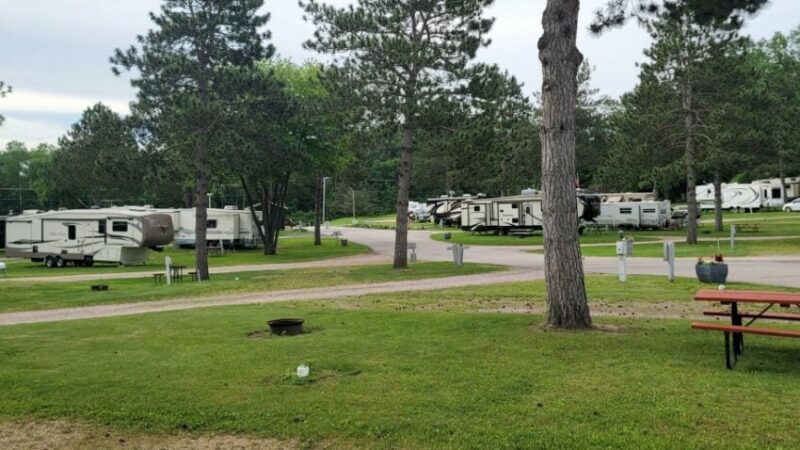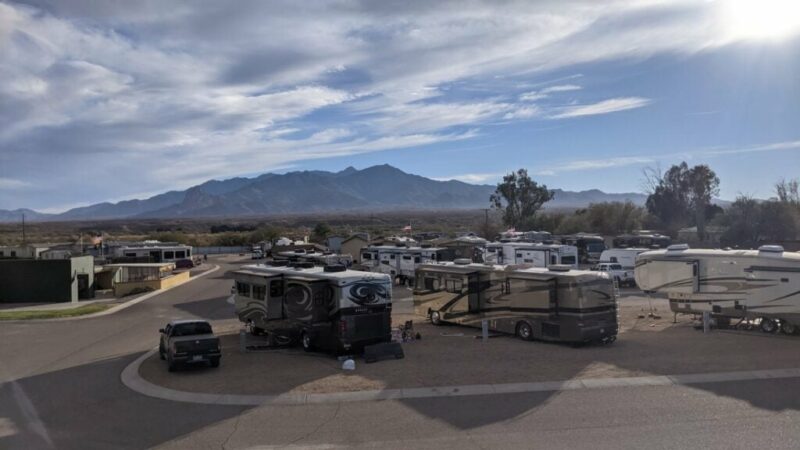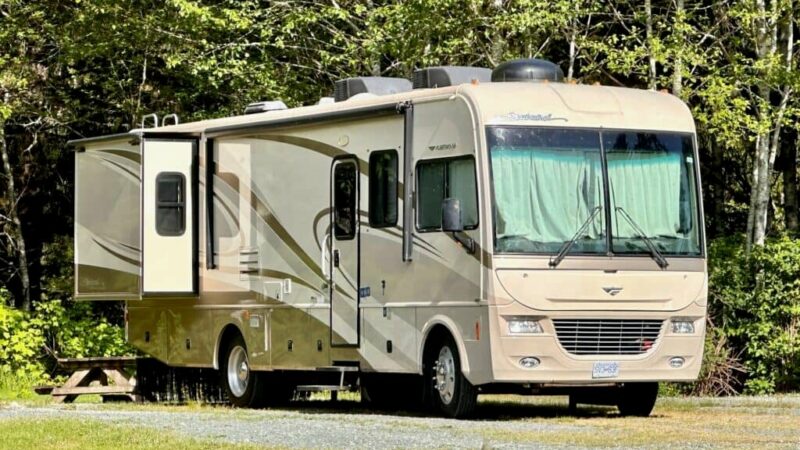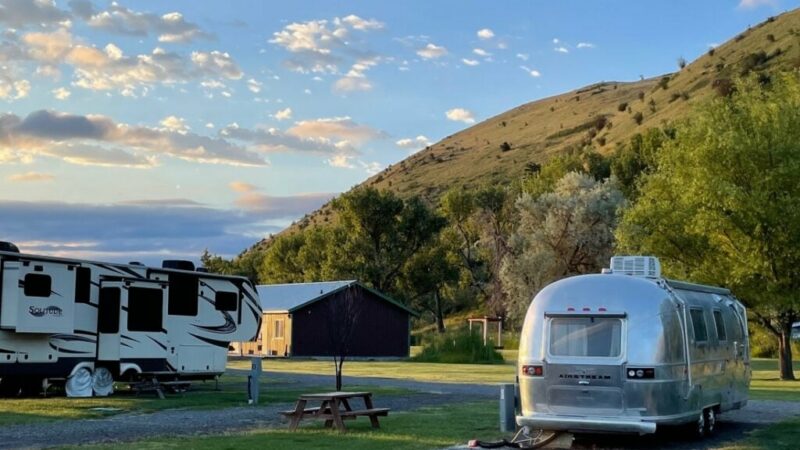What No One Tells You About Living In An RV Full Time
What I Wish I Knew Before Full-Time RVing
Traveling in an RV full time is a lifelong dream for thousands of people, and it is a decision that can change your life and your perspective, but it’s not just one long vacation.
There are issues that can make this experience more fun or less enjoyable, so I want to share what no one tells you about living in an RV full time before you start on this journey.
Size matters
One of the most important decisions you’ll need to make when becoming full time RVers is what type and size of RV will meet your needs, and bigger is not always better.
In the five years that we have been full time RVers, and in the 20+ years as active weekend warriors before that, we’ve met dozens of full time RVers who regretted their RV choice, and that decision impacted every aspect of their full time RV adventure.
RVs that were too big
Some of these folks went to RV shows where massive fifth wheel toy hauler trailers were all set up with their dropdown back and side patios, open kitchen with a freestanding island, and lots of extra play space for the kids and pets in the back. These models were all on display, beckoning the would-be full timer to imagine how much fun they could have in these huge RVs.
We met a couple who got sucked into this illusion, but they had never even camped in an RV before they bought a 45-foot fifth wheel trailer. They quickly learned the stress of towing it, backing it, and setting it up in a campground. They remembered how tall it was, and that had already resulted in two accidents that damaged their new RV.
This couple was a nervous wreck. They had sold their house and everything in it to begin this new adventure, and they were absolutely miserable. They deeply regretted their decision and were not coping with the stress of their new lifestyle. Perhaps they might have been happier with an RV that was smaller and more manageable. After all, did a couple with no kids or pets really need an RV that large?
Another couple’s trailer was so large they refused to tow it themselves, so they hired a towing company to move it from one campground to another. They loved all the extra space, but it was extremely limiting to the spontaneity and adventure of being full time RVers.
Additionally, we met a couple with three children who bought the largest RV they could afford to give their children plenty of space for schoolwork and activities, but they quickly learned they didn’t need that much space, and their large RV was difficult to fit into many state parks and even some private campgrounds.
RVs that were too small
On the flip side of the size issue is an RV that is too small to meet your needs. Again, we have encountered many people who thought a small RV would be the perfect fit for their full time adventure, only to realize after buying one that the sink was too small to even wash the dog bowl, there wasn’t enough storage space for their gear, the space in the refrigerator was very limiting, the holding tanks were so small they could only boondock for a day or so, and not having an onboard shower required some creative outdoor gear and adaptations.
Certainly, smaller RVs are lightweight and nimble and can go almost anywhere a car or truck can go. They fit into almost any campsite, which makes them a very attractive option. Most of the smaller RVs provide a great base camp for an outdoor camping lifestyle, which is great until you discover that the weather conditions in many parts of the country are not conducive to an outdoor lifestyle.
Be prepared for winter weather
As full time RVers, you’re going to be living in your RV year-round, which will include all the winter months. We full-timed in Oregon for several winters and met numerous other full time RVers struggling to find shelter from Oregon’s constant winter rain.
One Canadian couple was full-timing in a teardrop trailer; another single man was using a pop-up Alpine trailer; a single woman and her dog were in a brand new van conversion; and another couple and their two dogs were in a very small Class B+ motorhome.
Oregon winters are not compatible with an outdoor lifestyle, and the people who were camping in these very small RVs had little to no room to move around, cook, recreate, or even shower without walking a few hundred yards through the rain to the public restrooms.
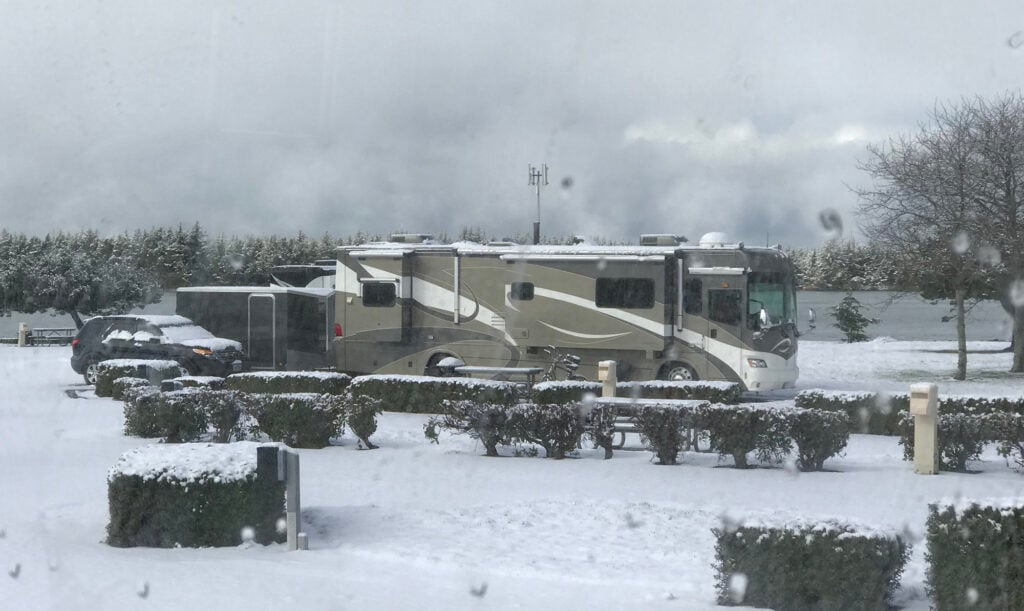
Try renting an RV first
Therefore, for new full time RVers, the first and most important consideration is to fully understand what size and style of RV will really meet your needs. The best way to do that is to rent a few different types of RVs and then go camping in them to see how they fit.
Don’t be in a rush to buy the biggest or smallest RV before you consider the pros and cons of each option. Take your time to explore all the features, benefits, and limitations of each type and size of RV. Know where you think you want to travel and what your objectives are, then spend time talking to current RVers to learn from their experiences.
Do you just want to live in an RV to save some money, or do you want to be continuous travelers on an extended adventure of discovery? How do you want to use your RV, who will be using it, where do you want to travel, how long will you be full-timing, and what is your exit plan? These are all important upfront considerations that will help you find the right RV for your full time RV lifestyle.
Uncertainty can be stressful
Another thing people don’t think about when they’re considering a full time RV adventure is that uncertainty can cause a lot of stress. When you’re in a daily routine, you follow familiar patterns. You shop in the same places, take the same route to and from work, know your neighbors, have favorite restaurants, and basically do the same things without really thinking about it. This routine may become monotonous, but at least it’s familiar.
But when you’re a full-time RV, everything is new and uncertain. This may be one of the allures of becoming a full-time RVer, but most people don’t appreciate just how pervasive this uncertainty can be. You have to think about everything and plan ahead, like where and when you will be traveling, how are you going to get there, and what weather or climate issues will you encounter.
Even after doing all this planning, you still have no idea what you may encounter when you arrive at a new destination. Even stopping for gas or diesel can be a stressful and frustrating experience.
Plan your travel days ahead of time
We often try to drive ahead in our tow car to our next destination to make sure the road is suitable for our 38-foot motorhome. We scout the road, gas stations, campgrounds, overpasses, tunnels, and any other travel hazards so we can reduce the stress of the uncertainty.
On several of these scouting trips, we have discovered roads that simply were too narrow or too long to justify the trip, or we discovered that the internet description of the campground where we had made reservations was completely false, and the campground was just not a good fit for us or our RV.
Another stressful uncertainty of full time RVing is the weather. Many full time RVers report this as their biggest concern. Snow, ice, hail, wind, lightning, hurricanes, and tornadoes are all potential dangers if you live in an RV.
You might think that being in a house on wheels would allow you to avoid dangerous weather conditions, but in many of these devastating storms, you do not have time to get away from the hazard, nor do you know which way to go to avoid it.
Lightning can cause a forest fire to surround you, and there’s no way to predict where a tornado will touch down. In one case, we had less than 15 minutes warning that we were in the direct path of a damaging hailstorm. Fortunately, it slipped past us just beyond the campground, but even with the biggest hail missing the RVs, it sounded like we were in a war zone, as thousands of smaller hail stones slammed into the windows and roof.

Disconnected from community, friends, and family
Many new RV adventurers underestimate how they will be affected by being disconnected from their communities. We are, after all, social beings, and we rely on family, friends, churches, clubs, organizations, teams, and loose affiliations to help us feel grounded and mentally well.
When you start a full-time adventure, you trade the familiar in for the unfamiliar, and many full time RVers express frustration with the superficial interactions between RVers that are common in this lifestyle. You may actually get to know some other RVers, and you may even choose to travel with a group, but sooner or later the rally will break up, and either you or they will be onto another destination.
Of course, you can keep in touch with family and friends via social media and technology, but it’s not the same as bowling with your team or playing gin with your usual group of friends. Holidays, family events, birthdays, big occasions, and celebrations, plus all the small routine visits from the kids and grandkids are no longer part of your routine. Being home sick may be a much bigger problem than you ever anticipate when you start on your full time RV adventure.
Full time RVing can be surprisingly expensive
Lastly, what no one tells you about living in an RV full time is that it may be more expensive than you originally thought. This may not be true for everyone, but our personal experience is that it is significantly more expensive.
You try to anticipate your costs, RV insurance, car/truck payments, fuel expenses, park fees, groceries, pet food and supplies, supplies for the RV, maintenance costs, emergency costs, etc. But for some reason, all these things may cost more than you anticipated.
Then there’s the admission fees to parks, museums, attractions, dining experiences, and sightseeing opportunities. It all adds up.
When we first started our full time adventure, we met a couple who had already been full timing for about three years, and we discussed the issue of the budget. They told us that their goal was to stay as close to $100 per day as possible with a monthly budget of $3000. At the time, we thought that was a little extreme because our budget indicated monthly expenses less than that.
We were wrong! Now after having spent over five years on the road as full time travelers, we have discovered that their goal of a $100 a day would be a huge victory for us because our average monthly expenses are closer to $5,000. Every month, we record all of our expenses, and we analyze these costs to see if we can economize anywhere, but we’re never able to shave much off the bottom line.
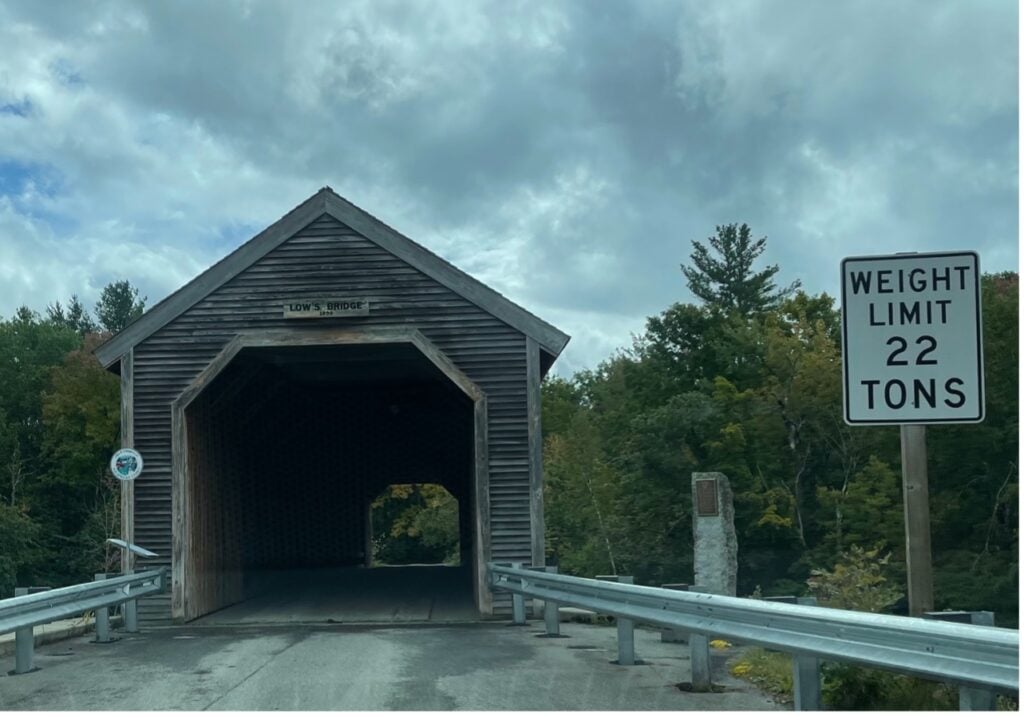
Be prepared to budget
We spend more on technology than most people, but we work from our RV and need reliable connectivity. We started our journey with several dogs (now we’re down to two), and we refuse to economize on their food and supplies, so we continue to economize and dream of getting down to $100 a day.
To be completely transparent, it’s worth mentioning that we do not have a car payment, motorhome payment, or an extended warranty. We have had a couple of significant RV maintenance bills, and two expensive dog health procedures that impacted our budget, but those are the types of emergencies you have to plan for when you are thinking of becoming full-time RVers.
Another relevant fact is that we do not like to boondock or camp in rustic campgrounds without electricity, sewer, and water. Our RV is set up for boondocking, but we just prefer full service campgrounds.
When you add up the fees for camping for 365 days a year, it will have a significant impact on your budget. We know many campers and full-timer RVers who only use full service campgrounds, for a few days a month, and I believe they might be able to hit the $100 daily goal more easily. Some other campers, only use membership campgrounds like Thousand Trails, and that will also lower your monthly costs. These are all personal decisions and only you know what will work for you.
Get tips from other full time RVers
One of the best parts about RVing is engaging with the community of traveling enthusiasts. iRV2 forums allow folks to chat with other RVers online, and get other perspectives on everything RVing, including products, destinations, RV mods, and more.
Related articles:
The post What No One Tells You About Living In An RV Full Time appeared first on RV LIFE.




